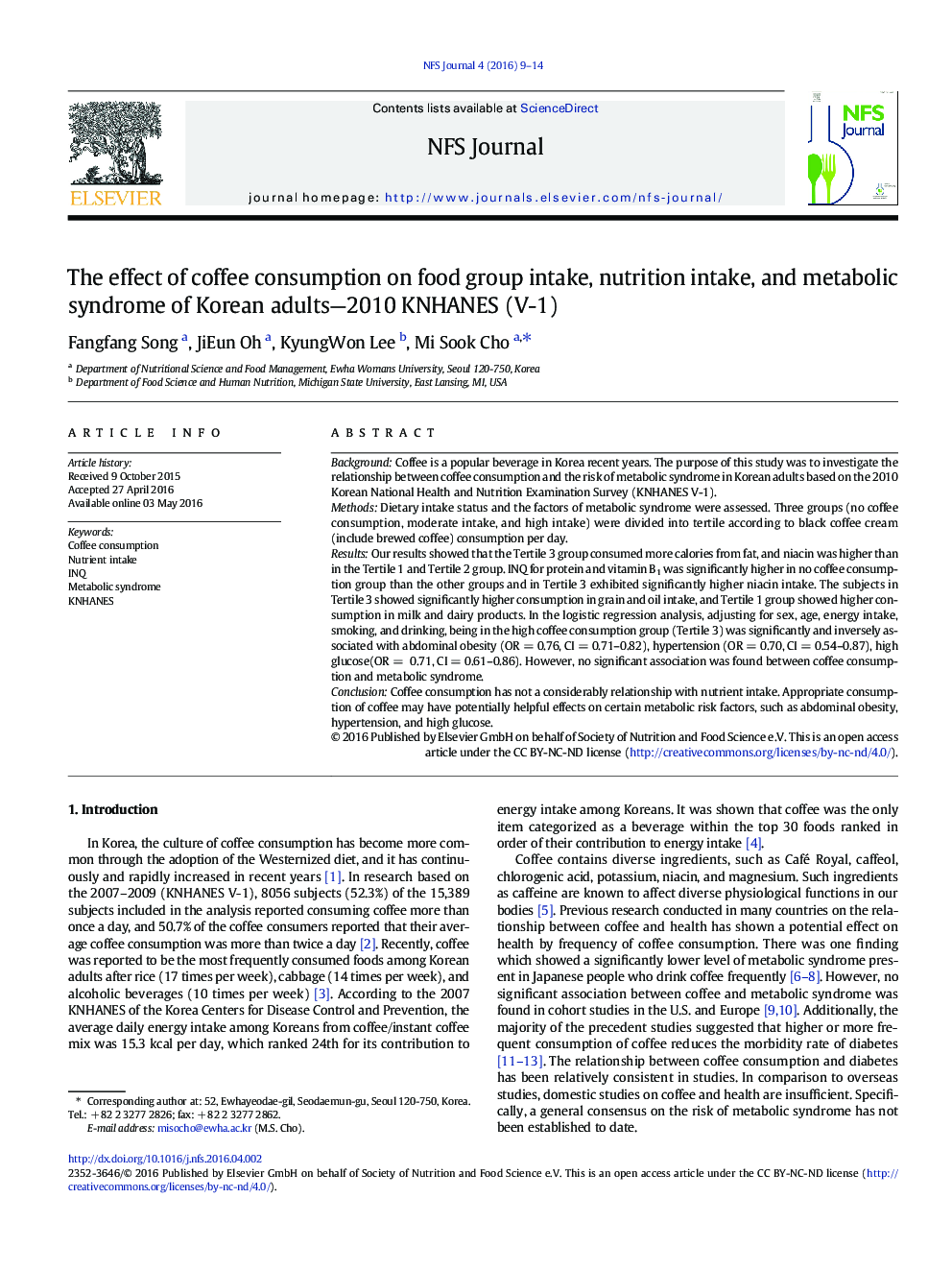| Article ID | Journal | Published Year | Pages | File Type |
|---|---|---|---|---|
| 1085603 | NFS Journal | 2016 | 6 Pages |
BackgroundCoffee is a popular beverage in Korea recent years. The purpose of this study was to investigate the relationship between coffee consumption and the risk of metabolic syndrome in Korean adults based on the 2010 Korean National Health and Nutrition Examination Survey (KNHANES V-1).MethodsDietary intake status and the factors of metabolic syndrome were assessed. Three groups (no coffee consumption, moderate intake, and high intake) were divided into tertile according to black coffee cream (include brewed coffee) consumption per day.ResultsOur results showed that the Tertile 3 group consumed more calories from fat, and niacin was higher than in the Tertile 1 and Tertile 2 group. INQ for protein and vitamin B1 was significantly higher in no coffee consumption group than the other groups and in Tertile 3 exhibited significantly higher niacin intake. The subjects in Tertile 3 showed significantly higher consumption in grain and oil intake, and Tertile 1 group showed higher consumption in milk and dairy products. In the logistic regression analysis, adjusting for sex, age, energy intake, smoking, and drinking, being in the high coffee consumption group (Tertile 3) was significantly and inversely associated with abdominal obesity (OR = 0.76, CI = 0.71–0.82), hypertension (OR = 0.70, CI = 0.54–0.87), high glucose(OR = 0.71, CI = 0.61–0.86). However, no significant association was found between coffee consumption and metabolic syndrome.ConclusionCoffee consumption has not a considerably relationship with nutrient intake. Appropriate consumption of coffee may have potentially helpful effects on certain metabolic risk factors, such as abdominal obesity, hypertension, and high glucose.
